Jojoba oil is great for many things, but sometimes you prefer to use something else. Maybe you like the benefits of jojoba oil, but don’t like the way it smells. Maybe you don’t like the high price tag or how hard it is to find in stores. That’s okay.
But, what is the best alternative to jojoba oil?
The two best substitutes are sweet almond and hazelnut oil. Yet, you have a variety to choose from.
Below, I cover all the best substitutes for jojoba oil and why each one can be good so you can make the best choice as well as the best for specific situations like when making soap, for your hair and more.
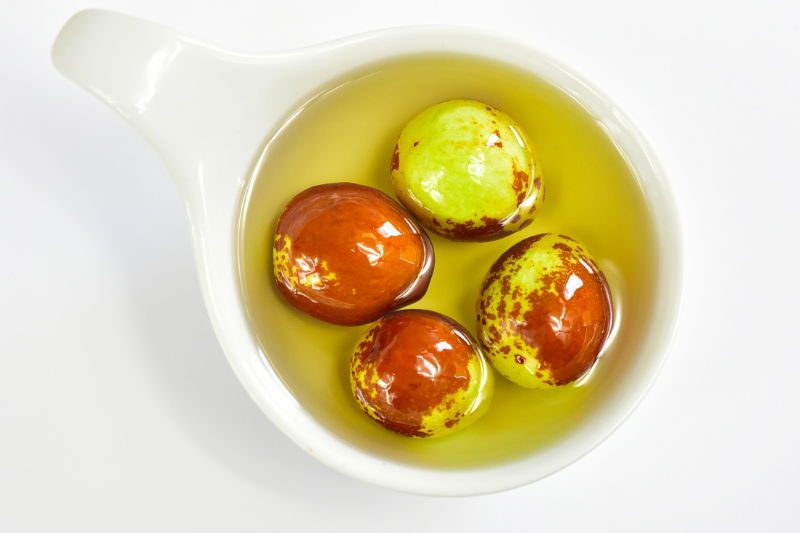
What Is Jojoba Oil?
Jojoba oil is not an oil at all — it’s a waxy ester. We refer to it as oil because it looks like oil when stored at room temperature. In its natural form, it takes on a golden coloration with a light, earthy scent.
Jojoba Oil — The Waxy Ester
The fact that jojoba oil is a waxy ester is very important because of its composition.
Our body naturally produces an oil called sebum. We use sebum to keep our skin hydrated and moisturized.
Jojoba oil is almost identical to sebum in composition. This gives jojoba oil the ability to easily moisturize and protect our skin. It can also stabilize the pH and oil production of our skin.
What Are The Benefits Of Jojoba Oil?
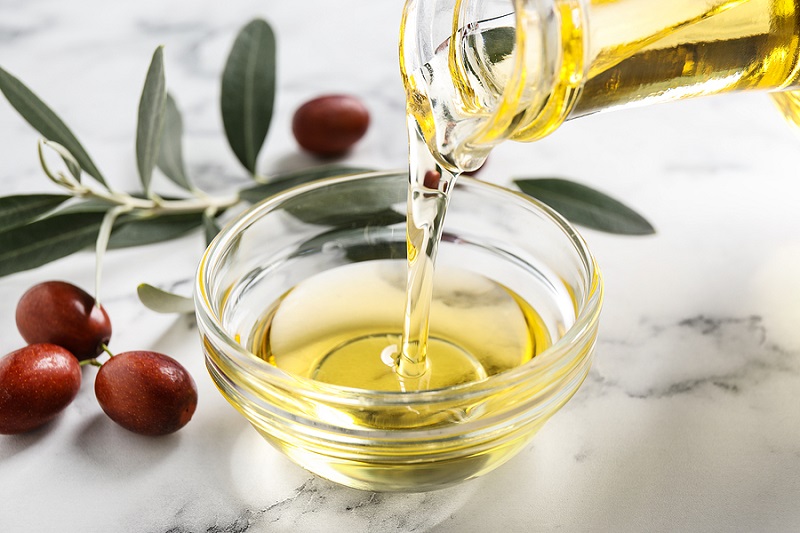
People love jojoba oil because of the things it can do for their skin and hair.
Jojoba Oil Is Good For All Skin Types
There is no research that shows that jojoba oil contains any allergens. Because of this, it’s very unlikely that jojoba oil will cause an allergic reaction.
It is also a very gentle substance, which means that it is safe to use on the most sensitive skin. So safe, that you can use it on your face and lips.
Read more about using jojoba oil for lips here.
Jojoba Oil Fights Infection & Promotes Wound Healing
Jojoba oil contains antibacterial, antimicrobial, antifungal, and anti-inflammatory properties. Because of this, jojoba oil can help fight infections of all kinds, as well as promote wound healing.
The nutrients in jojoba oil work to fix damaged cells. They also work to produce new, healthy cells.
Also read how you can use jojoba oil for scars here.
Jojoba Oil Balances Oil & Eliminates Acne
Remember that jojoba oil has an almost identical composition to sebum. When you use jojoba oil, it tricks your body into thinking it’s already produced enough oil. If you struggle with oily skin, jojoba oil can regulate and reduce the amount of oil you produce.
Likewise, it can eliminate or treat acne. The cause of acne is bacteria and excess oil. We already know that jojoba oil regulates oil production and fights infections. So, if you have acne, give jojoba oil a try.
Jojoba Oil Is Moisturizing
If you’re looking to moisturize your skin, jojoba oil is good for that as well. Rather than nourishing the skin from the inside, jojoba oil protects from the outside.
It forms a barrier on the outside of your skin that locks in the moisture already contained there.
Jojoba Oil Protects Your Skin
Likewise, the barrier acts as a layer of protection. It keeps out dirt, germs, chemicals, pollution, and the sun.
Jojoba Oil Reduces The Signs Of Aging
Jojoba oil contains antioxidants like vitamins E, C, and D. They fight against free radicals that damage cells. Free radicals cause wrinkles, sagging, and dark spots.
What Is The Best Jojoba Oil Substitute For Skin?
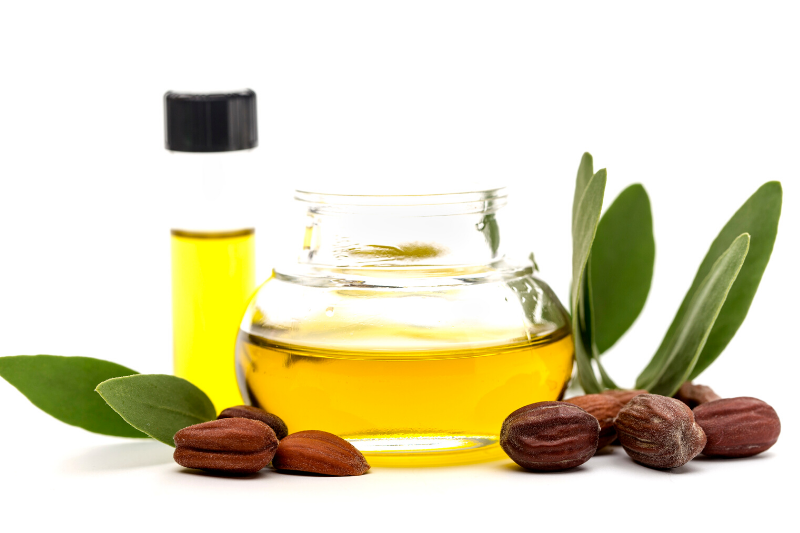
If you’re looking for a jojoba oil replacement, you have a few options.
You can substitute jojoba oil with:
Sweet almond oil
- Hazelnut oil
- Evening primrose oil
Avocado oil
- Peach kernel oil
Rosehip oil
Soybean oil
The best replacement for jojoba oil is sweet almond oil. This is because it’s very much like jojoba oil and is great for the skin.
Sweet Almond Oil
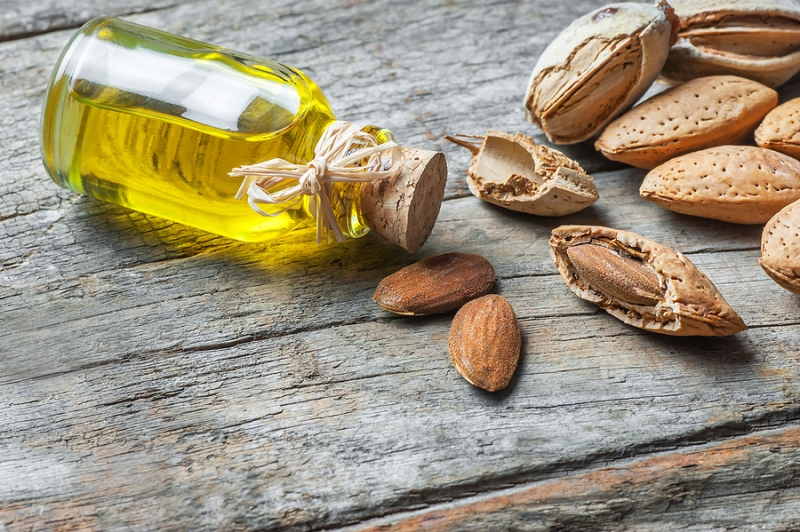
Sweet almond oil contains vitamins A, E, B1, B2, and B6 which are great for moisturizing skin.
Vitamin E works well as a preservative, so sweet almond oil will help your product last longer. Vitamin A also works to stabilize the oil production of the skin, so it works well for oily skin.
You will also find a high concentration of fatty acids in jojoba oil. They work to heal the skin and promote cell production. When using sweet almond oil, you will notice relief from itchiness and sunburn.
The Best Jojoba Oil Substitute For Face — Rosehip Oil
Jojoba oil has a comedogenic rating of “2”. It’s generally considered non-comedogenic, but the possibility is still there. Has it been causing you acne? If so, you’re going to want to find a substitute for jojoba oil for face.
Rosehip oil has a rating of “1” on the comedogenic scale, so it is very unlikely to cause acne.
Yet, the main reason rosehip oil is great for the face is because of its anti-aging properties. It works to regenerate and heal skin cells, reducing the signs of aging. It can heal dry skin, reduce wrinkles, end dark spots, and heal burns and scars.
The Best Substitute For Jojoba Oil In Lotion — Hazelnut Oil
Hazelnut oil makes a good substitute for lotion. It is light, so it doesn’t leave a greasy feeling on the skin, but it penetrates the skin easily. This makes it moisturizing and softening.
It is perfect for even the most sensitive skin, like those suffering from eczema or psoriasis. Hazelnut oil contains vitamins A, B, and E. It also contains linoleic and oleic acids. These are good for healing dry skin, psoriasis, and eczema.
Evening Primrose Oil
Evening primrose oil is another good jojoba substitute. It’s high in essential fats. This makes it good for healing dry and damaged skin as well as reducing inflammation.
Avocado Oil
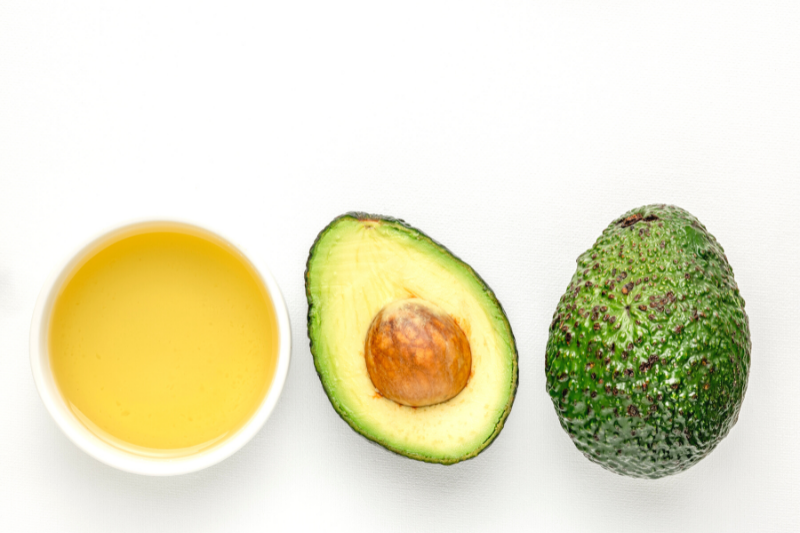
Avocado oil is high in fatty acids and antioxidants. It contains vitamins A, B, and D that help skin cells and tissues function. It also renews damaged skin cells to heal dry or wrinkled skin.
Peach Kernal Oil
Peach kernel oil is also rich in antioxidants like vitamins A, B1, B2, and B6. These help to heal and renew skin. Yet, peach kernel oil is more expensive than many of the other options.
Soybean Oil
Soybean oil is high in vitamin E as well as fatty acids that aid in cell healing. It can help the skin become softer and smoother, and it prevents drying.
What Is The Best Substitute For Jojoba Oil In Soap Making?
Jojoba oil is often used to make soap because it mimics sebum and sustains a nice lather in the soap. But, if you use too much, you might not get a good lather from your soap.
There are plenty of other good options for your soap-making:
- Olive Oil: mild and nourishing — great for sensitive skin
Cocoa Butter : Creates a thick, lotion-like lather that feels more moisturizing
Shea Butter : Creates a thick, lotion-like lather that feels more moisturizing
Mango Butter : Moisturizing and conditioning
Avocado Oil : high amounts of vitamin E — great for facial soaps
What Is The Best Substitute For Jojoba Oil For Hair?
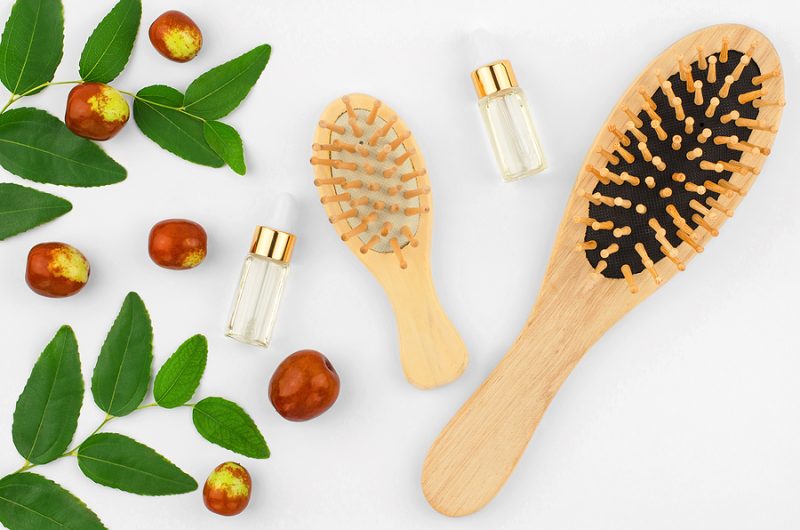
Some people won’t get the moisturizing potential of jojoba oil from their hair. Others may feel that their hair is becoming too oily. If this applies to you, you’ll want to find a jojoba oil substitute for hair.
The best hair substitute for jojoba oil is Abyssinian oil. It is like jojoba oil, but it has a much higher concentration of erucic acid. The erucic acid will make your hair stronger and softer than jojoba oil will.
Abyssinian oil acts as a natural alternative to silicones. Silicones are often found in hair care products. It will leave your hair feeling light, but soft, and will give your hair a beautiful shine.
It’s able to do this because it forms a lasting lipid layer over the hair that locks in moisture and detangles dry hair. It even works as a great heat protectant.
You can add Abyssinian oil to your shampoo or conditioner as you would jojoba oil.
What Is The Best Jojoba Oil Alternative For Beeswax Wraps?
Beeswax wraps are an environmentally-friendly alternative to plastic wraps. You can use them for your bowls of food instead of wrapping the bowl with plastic or foil. They are even reusable!
Many people create their own beeswax wraps, or you can buy them from the store. Yet, most beeswax wraps made with jojoba oil don’t seem to stick to themselves. This makes wrapping difficult.
So, you’re going to want to find a jojoba oil substitute for beeswax wraps.
I recommend using coconut oil. Substituting coconut oil for jojoba oil makes your beeswax wraps sticky. Still, it remains stretchy and easy to use.
Conclusion
If you’re looking for a jojoba substitute, you have plenty of options.
Sweet almond oil is going to be the closest to jojoba oil in terms of composition and benefits. Hazelnut oil is the gentlest on the face and fights anti-aging. Abyssinian is going to make your hair softer and stronger.
Whichever oil you choose, you’ll love how similar they are to jojoba oil.
Find how jojoba oil compares to almond oil here and rosehip oil here. Also read exactly how to store jojoba oil here and check out more jojoba oil guides here.



Comments are closed.